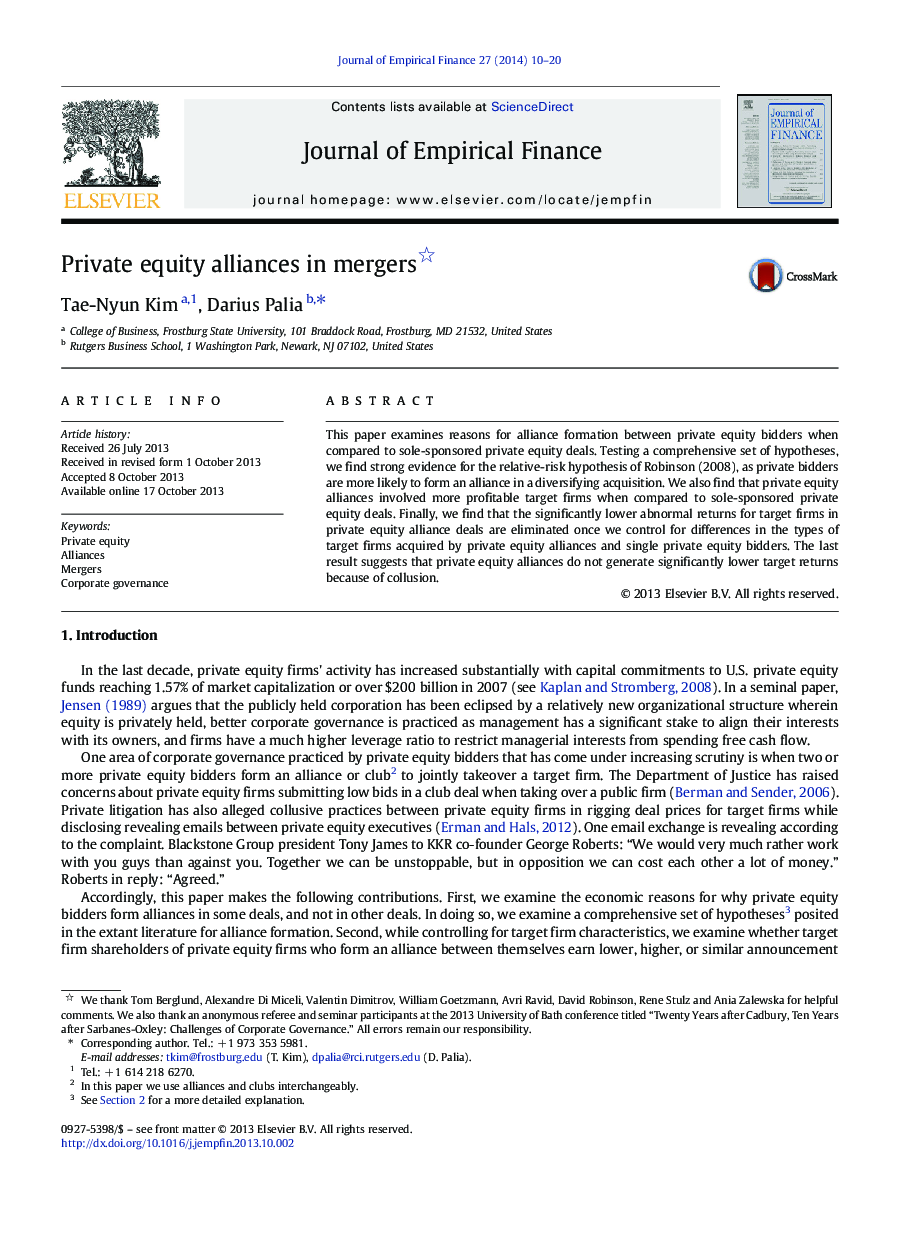| Article ID | Journal | Published Year | Pages | File Type |
|---|---|---|---|---|
| 958530 | Journal of Empirical Finance | 2014 | 11 Pages |
•Examines reasons for alliance formation between private equity bidders.•Private equity bidders prefer to do diversifying acquisitions in alliances.•Private equity alliances involve more profitable target firms.•Controlling for differences in target, private equity bidders earn no abnormal return.•Last result suggests no collusion between private equity alliances.
This paper examines reasons for alliance formation between private equity bidders when compared to sole-sponsored private equity deals. Testing a comprehensive set of hypotheses, we find strong evidence for the relative-risk hypothesis of Robinson (2008), as private bidders are more likely to form an alliance in a diversifying acquisition. We also find that private equity alliances involved more profitable target firms when compared to sole-sponsored private equity deals. Finally, we find that the significantly lower abnormal returns for target firms in private equity alliance deals are eliminated once we control for differences in the types of target firms acquired by private equity alliances and single private equity bidders. The last result suggests that private equity alliances do not generate significantly lower target returns because of collusion.
